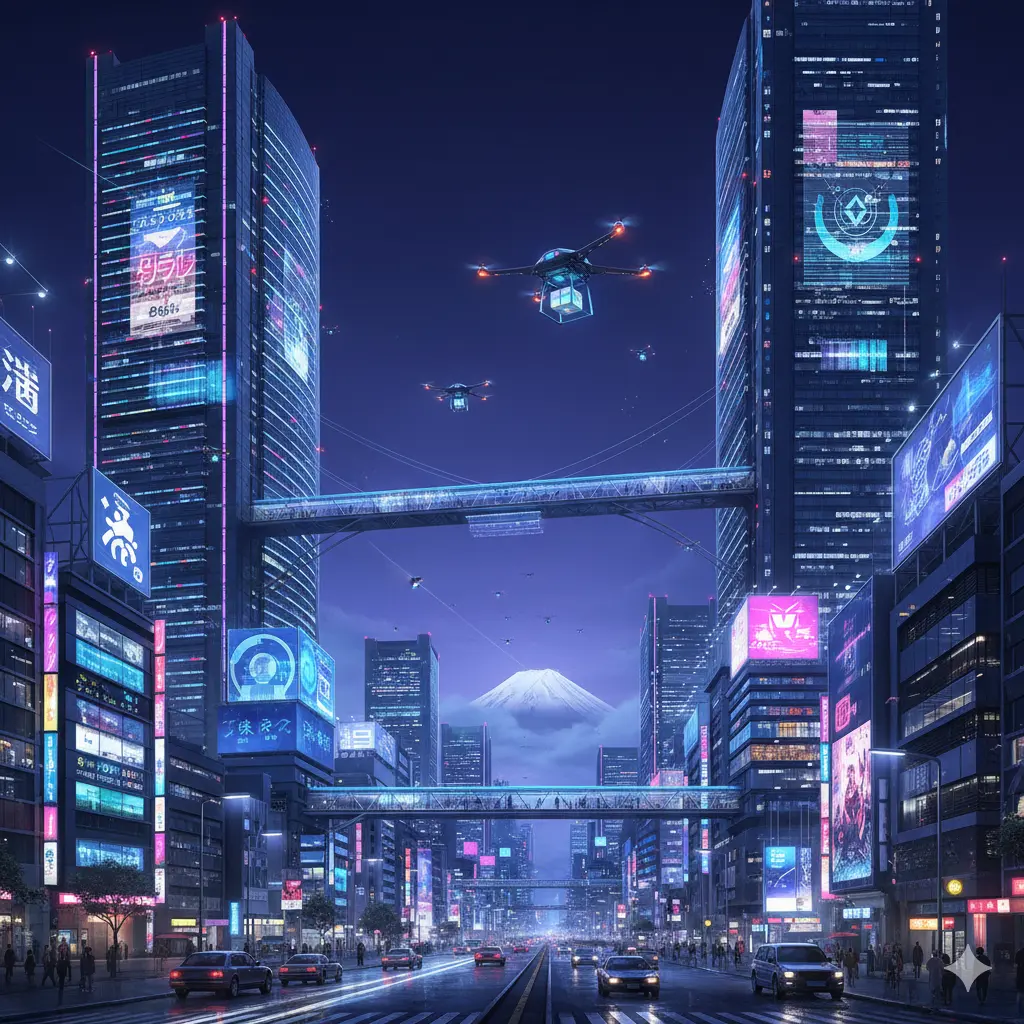|
Getting your Trinity Audio player ready... |
Japan is fast-tracking its efforts to become a global leader in AI-driven smart city development. In 2025, the government announced a new phase of its Society 5.0 initiative, focusing on integrating artificial intelligence (AI), the Internet of Things (IoT), and robotics into urban planning, transport, and sustainability systems.
This move aims to tackle the challenges of urbanization, aging populations, and energy efficiency — transforming Japanese cities into intelligent, connected ecosystems that enhance quality of life and economic growth.
A New Vision for Urban Innovation
The Japanese Ministry of Internal Affairs and Communications (MIC) has launched a ¥3.8 trillion ($25 billion USD) Smart City Acceleration Program, which will fund projects across Tokyo, Osaka, and Fukuoka.
The program’s goal: to create AI-powered infrastructure capable of automating traffic control, waste management, public safety, and energy distribution in real time.
According to Minister Jun Saito, “Japan’s vision of Society 5.0 is not just about technology—it’s about designing cities that think, adapt, and serve people better.”
Core Areas of AI Integration
Japan’s smart city initiative focuses on three main pillars of technological advancement:
- AI-Based Mobility and Transportation
Cities like Tokyo and Yokohama are deploying autonomous buses and smart traffic sensors to reduce congestion and accidents. AI algorithms will analyze real-time traffic data to optimize routes and control signals dynamically. - Energy Efficiency and Sustainability
AI-powered grid systems will automatically balance energy supply and demand, incorporating renewable sources like solar and wind.
Smart meters and predictive maintenance tools are being tested to reduce waste and improve grid stability. - Urban Security and Citizen Services
The government is implementing AI-based surveillance with privacy safeguards to detect hazards, track environmental pollution, and enhance emergency response systems.
Public-Private Partnerships Drive Growth
Japan’s success in AI innovation relies heavily on collaboration between government agencies, corporations, and research institutions.
Tech giants such as Fujitsu, NEC, Sony, and SoftBank Robotics are leading the development of AI algorithms and IoT devices powering these smart cities.
Meanwhile, startups in the Tokyo AI Consortium are creating micro-level solutions — like AI-driven waste segregation robots and real-time air quality sensors — that integrate seamlessly into the broader smart city network.
The University of Tokyo and Kyoto Institute of Technology are also playing major roles in developing ethical AI frameworks to ensure transparency and data protection.
International Collaboration and Export Potential
Japan is expanding its influence beyond national borders by exporting smart city technology to Southeast Asia and the Middle East.
Through the Japan Smart City Initiative (JSCI), Tokyo is working with nations like Indonesia, Saudi Arabia, and Vietnam to replicate its AI models for city planning.
The government has also entered joint ventures with the European Union and Singapore, sharing best practices on sustainable AI infrastructure and green urban solutions.
Challenges and Long-Term Goals
Despite its progress, Japan faces challenges such as high implementation costs, data privacy issues, and the need for skilled AI professionals.
Experts warn that building an AI-powered urban ecosystem requires both technological precision and societal trust.
To address this, Japan plans to introduce a National AI Governance Framework in 2026, ensuring responsible AI deployment across industries.
By 2030, Japan aims to have at least 20 fully AI-integrated cities, setting a global benchmark for smart infrastructure and sustainable innovation.
Japan Updated Version
Japan’s renewed focus on AI for smart cities reflects its deep-rooted commitment to blending technology, culture, and sustainability.
Through bold investments, global collaboration, and innovation-driven policies, Japan is redefining what the future of urban living looks like — intelligent, efficient, and human-centric.
As the world watches, Japan’s Society 5.0 vision may well become the blueprint for the next generation of connected cities across the globe.







